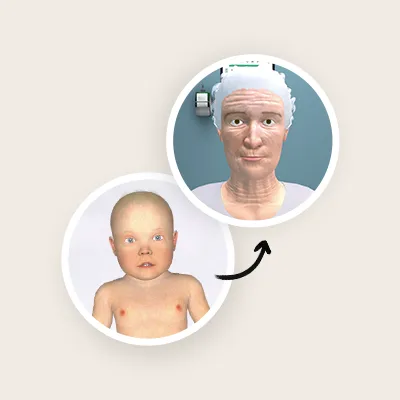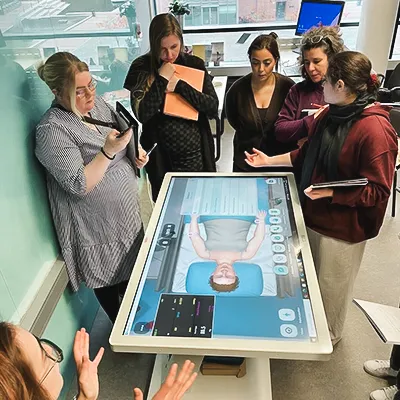Professional Nursing Development Through Simulation
As the demands on healthcare professionals continue to evolve, the importance of ongoing professional development and training for nurses becomes increasingly clear. Defined by research-based standards, nursing practice specialties are critical to achieving high-quality patient care and organizational success. [1]
For nurses, this journey begins with a solid foundation in education and clinical practice. However, as the healthcare landscape is constantly evolving, nurses must adapt to new technologies, treatments, and protocols.
Continuing professional development is crucial for healthcare professionals to acquire and enhance the essential knowledge and skills needed to deliver patient-centered, safe, and effective care. [2]
Simulation Training: A Powerful Tool for Continuous Learning
Simulation training represents an approach through which nurses develop their skills and refine their expertise. This transformative methodology enhances clinical proficiency and contributes to continuous improvement. Additionally, it is a commitment to excellence, credibility, and a dedication to continuous learning.
By replicating real-life clinical scenarios in a controlled environment, simulation training enables nurses to practice their soft skills, make clinical decisions that enhance their clinical judgment skills, and refine their critical thinking abilities – all without compromising patient safety.
Whether they are managing complex medical-surgical cases, navigating the nuances of mental health assessments, or providing compassionate care in pediatric or geriatric settings, it provides a safe space for nurses to learn and grow.

How do Virtual Patients foster Professional Nursing Development?
The integration of Body Interact into nursing education and professional development offers a transformative learning experience. Through simulation, nurses can develop their clinical expertise, refine communication skills, and ultimately deliver superior patient care.
Furthermore, learning and practicing with the Virtual Patient Simulator fosters a culture of continuous improvement and reflective practice, empowering nurses to deliver high-quality care in diverse clinical settings.

With a library of clinical scenarios, nurses engage with lifelike virtual patients, honing their clinical judgment and interdisciplinary collaboration.
Review the various healthcare domains available:
-
Medical-surgical
-
Mental health
-
Pediatrics
-
Geriatrics
-
Maternal health and obstetrics
-
Community and public health
-
Pharmacology
-
Additional nursing areas
Beyond the individual benefits of continuous learning, by investing in professional development and simulation training, healthcare organizations also empower their interdisciplinary teams in their roles and advance patient-centered care.
These factors are thus indispensable pillars of nursing excellence.
Delve into the diverse nursing areas waiting for you!
Schedule a meeting with the Body Interact team
References
1- Brunt BA, Morris MM. Nursing Professional Development. [Updated 2022 Sep 20]. In: StatPearls [Internet]. Treasure Island (FL): StatPearls Publishing; 2024 Jan-.
Available from: https://www.ncbi.nlm.nih.gov/books/NBK531482/
2- King R, Taylor B, Talpur A, Jackson C, Manley K, Ashby N, Tod A, Ryan T, Wood E, Senek M, Robertson S. Factors that optimize the impact of continuing professional development in nursing: A rapid evidence review. Nurse Educ Today. 2021 Mar;98:104652. doi: 10.1016/j.nedt.2020.104652.
Available from: https://pubmed.ncbi.nlm.nih.gov/33190952/
By Ana Santa – MSN, APRN









